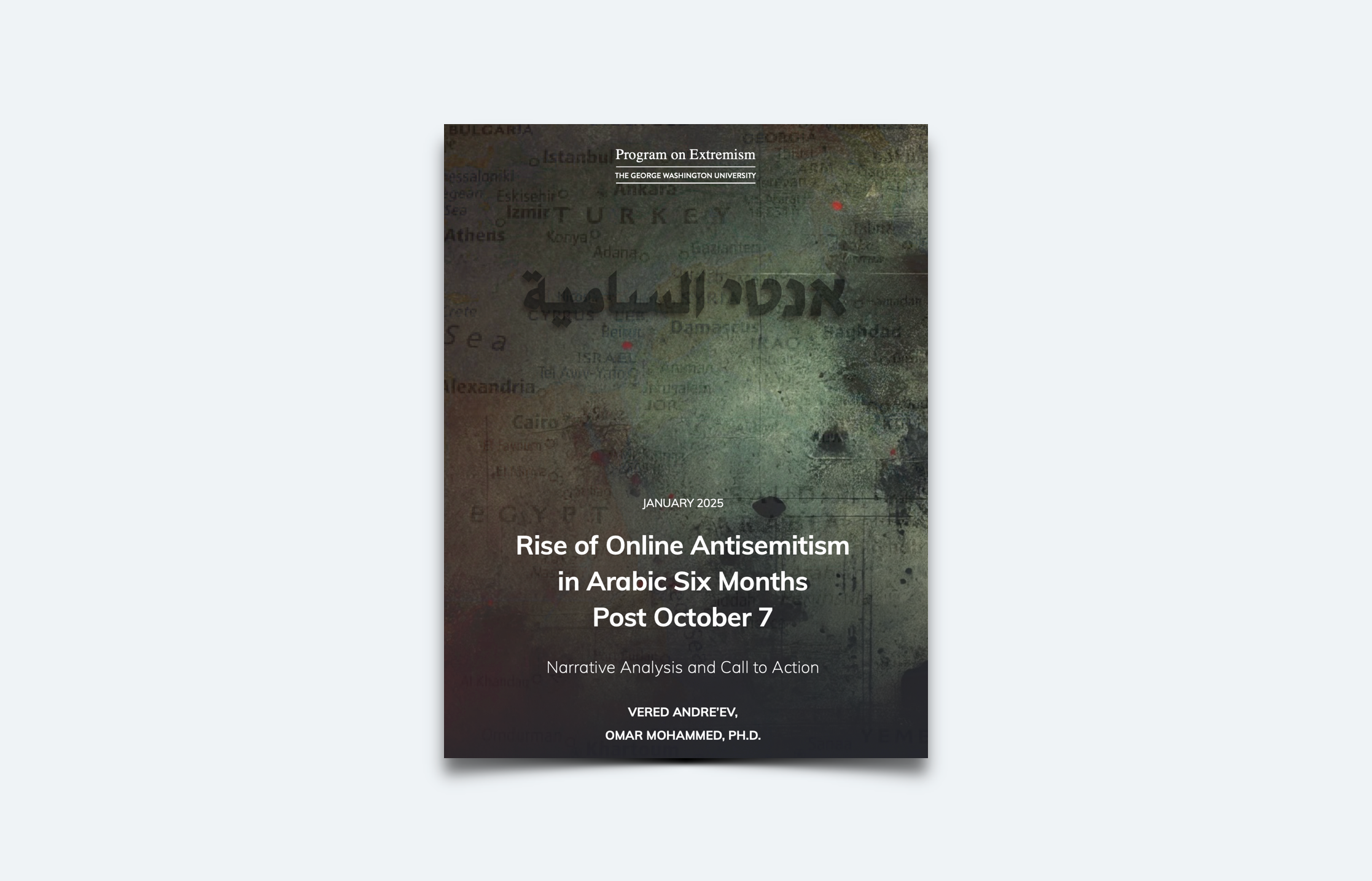This paper examines the alarming rise of antisemitic content in Arabic across online platforms in the six months following the October 7, 2023, Hamas attacks. Through a detailed narrative analysis and data-driven insights, the study highlights the evolution of antisemitic rhetoric, its normalization, and the critical gaps in detection and enforcement by social media platforms.
Key Findings:
- Post-October 7 Spike: The attacks triggered a surge in antisemitic content online, particularly on platforms like X (formerly Twitter) and TikTok, where antisemitic posts increased significantly. Narratives shifted from conspiratorial themes to violent rhetoric, Holocaust denial, and dehumanizing stereotypes.
- Top Narratives and Tropes: The study identifies consistent themes, such as "Jews are the enemy," religiously rooted antisemitism, and Zionist domination/control narratives. The Protocols of the Elders of Zion and Holocaust denial also re-emerged as prominent motifs.
- Platform-Specific Trends: Variations were observed across platforms. TikTok saw the most significant percentage increase in antisemitic posts post-October 7, while X had the highest overall volume of posts.
- Detection and Enforcement Challenges: Social media platforms lack robust tools to detect antisemitic content in Arabic. The study underscores the inadequacy of moderation resources for Arabic-language content. It highlights how terms like "Zionists" or "Sons of Zion" are used as proxies for Jews to bypass content moderation systems.
Recommendations:
- Enhanced Content Moderation: Social media platforms must dedicate resources to Arabic-language content and train moderators to understand the cultural and linguistic nuances of antisemitic rhetoric.
- Policy Updates: Platforms should explicitly address terms like "Khaybar," "Zionists," and references to The Protocols of the Elders of Zion in their community standards to reduce hate speech.
- Event-Specific Measures: During the conflict, platforms should allocate additional resources to monitor and remove violent content rapidly.
- Collaboration with Experts: Platforms should partner with scholars specializing in antisemitism and digital extremism to design better monitoring tools.


